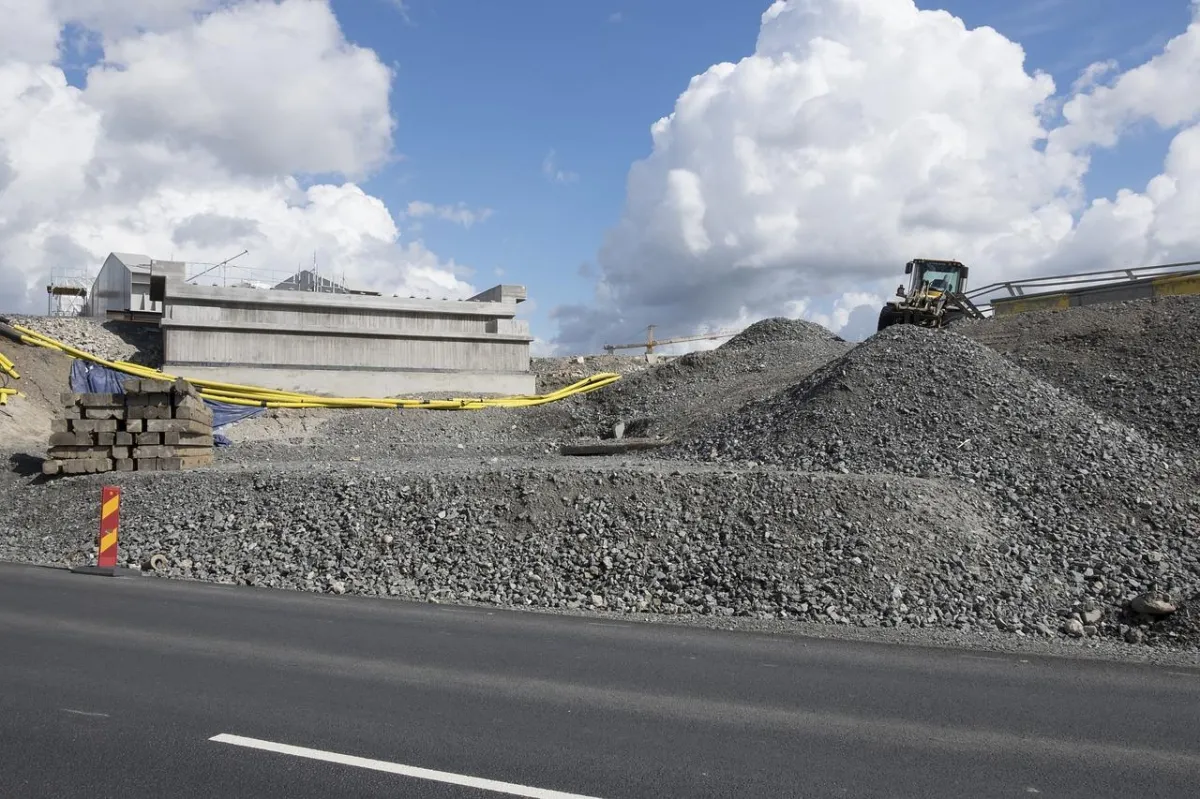Licensed, Bonded & Insured | Family Owned & Operated
049-012803 IL | IL Pumping License: 054-021753 | IA Pumping License: 12839
22 YRS. EXPERIENCE, FULL SITE PREP EXPERTS - HOW CAN WE HELP?

Why Road Construction Near Rock Island, IL Fails (And How to Avoid It)
1. What Road Construction Really Involves (And Why It’s Not as Simple as It Looks)
If you’re a homeowner or landowner in Rock Island County thinking about building a road—maybe to your house, barn, or shop—you’ve probably realized something: it’s not as simple as just dropping some gravel and calling it good.
A lot of folks start off thinking a road project is like a driveway, just bigger. But there’s way more going on underneath the surface—literally and figuratively. A proper road requires planning for drainage, soil stability, grading, permits, and access for heavy equipment. One small misstep early on can throw the whole thing off.
At Triple D Excavating Co., we’ve seen time and time again where a project looks great on paper but runs into issues when it hits the dirt. That’s why we wrote this article—to give you a clear picture of where things go wrong and how you can steer clear of trouble.
2. The Top 5 Problems That Wreck Road Projects Near Rock Island
1. Permits and Regulations
Road work near Rock Island often involves more red tape than expected. If your road touches a county right-of-way or affects a waterway, you may need approval from local or state agencies. Some folks don’t realize they even need a permit until they’re halfway through construction—and by then, it’s an expensive mess to fix.
2. Poor Drainage Planning
Water is one of the biggest destroyers of roads. Without proper ditches, culverts, or grading, water collects and softens the base. That’s when potholes start forming, gravel washes out, or frost heaves break up the surface. If you’ve ever driven a bumpy back road, you’ve seen this firsthand.
3. The Wrong Base Materials
We get it—gravel is gravel, right? Not quite. Using the wrong type or depth of base rock is a surefire way to have your road sink, shift, or wash away. We’ve seen roads with only a couple inches of stone trying to carry delivery trucks. That won’t hold.
4. Soft Soil or Unstable Ground
Here in western Illinois, we get a mix of loam, clay, and sometimes old farmland that wasn’t meant to support vehicles. Building on soft or wet soil without proper prep means your road might look good at first but start failing within the year.
5. Communication Breakdowns
This one’s simple but important. Miscommunication between the property owner and the contractor leads to surprises: the wrong road width, materials not ordered, or schedules thrown off. Clear expectations upfront are worth their weight in gravel.
3. How Weather and Rock Island County Terrain Can Make or Break a Road Build
Illinois weather doesn’t mess around. Sudden storms, frost cycles, and long dry spells can all impact your project—especially if you're not planning for them.
If you build in early spring when the ground is still wet and soft, the road might settle unevenly. Build too late in the fall, and you’re racing the freeze. Even summer construction can get derailed by a week of thunderstorms. And if your land is in a low-lying area or near a creek, those issues get worse.
What makes this even trickier is that every property is different. A road that works great on one side of Rock Island County might fail on the other if the drainage or soil type is different. That’s why it's crucial to look beyond just the surface.
4. Why Cutting Corners with Budget or Contractors Backfires Every Time
Let’s say you get two quotes for your road job. One guy is $4,000 less than the other. It’s tempting to grab the cheaper one and pocket the savings.
But what’s usually missing in that low quote? Proper base depth. Quality materials. Time for site prep. Drainage work. We’ve rebuilt a lot of roads that were “finished” by a cheaper contractor a year earlier.
The truth is, road construction is one of those things where you really get what you pay for. A low bid often leads to high costs later on when you’re dealing with erosion, ruts, or a road that needs to be redone.
And it’s not always about money. Sometimes the contractor just doesn’t communicate clearly, or they rush the job to fit in another one. That’s why hiring someone who actually listens to what you need and knows the area matters more than picking the lowest price.
5. Real Talk: What We’ve Seen Go Wrong on Local Jobs
We’ve worked on dozens of private road projects across Rock Island, Henry, and Mercer Counties. And we’ve seen some doozies. Here are just a few:
A road built too low in a field that turned into a muddy trench every spring. We had to raise it by a foot and add culverts.
A customer who skipped compaction to save time—within three months, ruts were so deep they needed a tow truck.
One road was built with the wrong kind of gravel, which turned to soup the first time it rained hard.
These weren’t bad people. They were just folks who didn’t know what they didn’t know. That’s why we’re big on explaining things upfront and customizing each job—because the right solution is different for every property.
6. How to Set Yourself Up for a Smooth Road Construction Project
Here’s what we suggest to anyone planning a road project near Rock Island:
Start With a Site Walk
Before any machine touches dirt, get a contractor to walk your property with you. Ask questions. Talk through your goals—what kind of traffic the road will handle, where water flows, what access you need year-round.
Plan for Drainage Early
Even if it’s dry now, think about spring runoff. We’ll help you plan for ditches, culverts, and grading that keeps water moving away—not into your roadbed.
Use the Right Materials
Don’t just buy the cheapest gravel. For most roads in our area, a solid base with 3” clean rock followed by a top layer of road mix or lime fines works best. But it depends on your soil and traffic.
Check Your Permits
If you’re not sure whether you need one, ask. It’s better to know than to be told after the fact that your new road has to be torn up. We’ve helped clients navigate this plenty of times.
Work With a Crew That Knows Local Land
Someone from out of town might not understand the soil conditions in Rock Island County or how our weather patterns affect a road build. We live here. We get it. And we care about getting it done right the first time.
7. Final Thoughts from Triple D Excavating Co.
If you're reading this and feeling a little overwhelmed, you’re not alone. Planning a road project can feel like a lot—especially when you’re trying to do things the right way.
We’re not here to sell you something. We're here to help you avoid mistakes we've seen too many folks make. Whether you’re building a half-mile lane to your house or just need a gravel road to the back pasture, our goal is to make it easier, clearer, and less stressful.
At Triple D Excavating Co., we don’t believe in one-size-fits-all. We believe in getting to know your land, listening to your goals, and building something solid that lasts. Because around here, a road isn’t just a way to get somewhere. It’s part of your property—and your future.

AVOID COSTLY MISTAKES:
Do NOT hire an excavating contractor without first reading our free guide:
The ULTIMATE Excavation & Septic "Success Guide."

We Offer Excavation Services NearYou!
If you don't see your specific area, contact us and we may still be able to help or give a referral.
All rights reserved | Privacy policy



